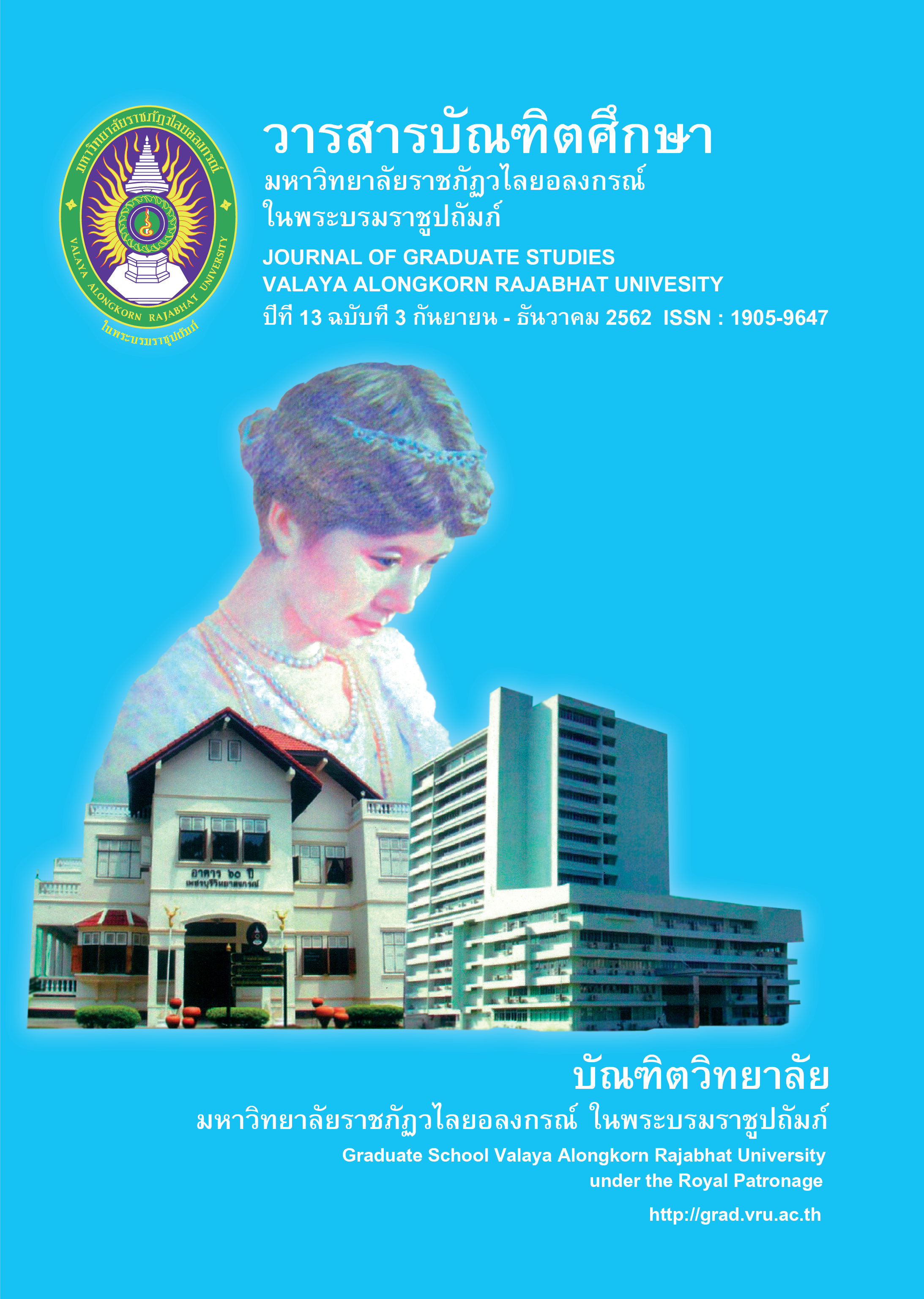A STUDY ON EGO IDENTITY AND PROFESSIONAL IDENTITY OF NURSING STUDENTS
Main Article Content
Abstract
The purpose of this qualitative research was to study the meaning and characteristics of ego identity and professional identity of private-university nursing students in and around Bangkok areas. Purposive sampling was used to select key informants, which consisted of five nursing students and five nursing instructors and professional nurses. In-depth interviews were used to collect the data. The topics and questions that guided the interviews were generated from related works on the subject. Content analysis was used for the data analysis.
The findings reveal that the meanings of ego identity depend on an individual’s inner self, and on how they see it from their standpoints. Despite the differences, however, five characteristics of ego identity can commonly be identified. These are: being one’s own self, self-understanding, goal-setting, emotional maturity and interpersonal relations. Similarly, the meaning of professional identity differs among the interviewees, but there are five traits of the professional identity that they all share: knowledge and professional skills, service-mindedness, volunteer spirits, discipline, morality and virtues. The characteristics of ego and professional identity found in this study would be beneficial to nursing-student development that nurtures the traits that help students reach their personal and professional goals.
Article Details

This work is licensed under a Creative Commons Attribution-NonCommercial-NoDerivatives 4.0 International License.
บทความทุกเรื่องได้รับการตรวจความถูกต้องทางวิชาการโดยผู้ทรงคุณวุฒิ ทรรศนะและข้อคิดเห็นในบทความ Journal of Global of Perspectives in Humanities and Social Sciences (J-GPHSS) มิใช่เป็นทรรศนะและความคิดของผู้จัดทำจึงมิใช่ความรับผิดชอบของบัณฑิตวิทยาลัย มหาวิทยาลัยราชภัฏวไลยอลงกรณ์ ในพระบรมราชูปถัมภ์ กองบรรณาธิการไม่สงวนสิทธิ์การคัดลอก แต่ให้อ้างอิงแหล่งที่มา
References
Cohen, H. A. (1981). The nurse's quest for a professional identity. California: Addison-Wesley.
Corrigan, M. W. (2001). Social exchange theory, interpersonal communication motives, and volunteerism: Identifying motivation to volunteer and the rewards and costs associated. Master’s thesis. West Virginia University.
Erikson, E. (1968). Identity: Youth and Crisis. New York: Norton.
Fry, S. T. (1994). Ethics in nursing practice: a guide to ethical decision making. Geneva: ICN.
Jeffrey, N. (1985). Social Psychology Society and Self. United States of America: West Publishing Company.
Josselson, R. (1987). Finding herself. Pathways to Identity Development in women. San Francisco-London: Jossey-Bass Publishers.
Leddy, S., & Pepper J. M. (1993). Conceptual Bases of Professional Nursing. 3 Edition. Philadelphia: Lippincott.
Magnussen, L. (1994). Ethics in the professional curriculum. Nursing Educator. 19(3), 9.
Marcia, J. E. (1975). Studies in ego identity. Burnaby, BC: Simon Fraser University.
Nawsuwan, K., Visalaporn, S., Sattayarak, W. D. (2015). konlawithī kānphatthanā ʻattalak khō̜ng naksưksā phayābān witthayālai phayābān krasūang sāthāranasuk [Strategies to Develop the Nursing Students’ Identity in Nursing Colleges, Ministry of Public Health]. Hatyai Academic Journal. 13(2), 117-132.
Offer, D., Ostrov, E., & Howard, K. (1981). The Adolescent: A Psychological Self-portrait. New York: Basic Books.
Patton, M. Q. (2002). Qualitative research and evaluation methods. 3 Edition. California: SAGE Publications.
Pimpong, S. (1997). kānphatthanā bǣp thotsō̜p bukkhalikkaphāp khwāmpen phayābān [Development of nursing personality test]. Doctoral dissertation. Srinakharinwirot University.
Pitakavakath, P. (2013). kānsưksā khunnalaksana khō̜ng naksưksā phayābān witthayālai phayābān kō̜ngthap rư̄a [A Study of the Characterstics of ursing Students of the royal thai Navy College]. Master’s thesis. Srinakharinwirot University.
Raymark, P. H., Schmit, M. J., & Guion, R. M. (1997). Identifying potentially useful personality constructs for employee selection. Personnel Psychology. 50(3), 723-736.
Sirilai, S. (2013). čhariyasāt samrap phayābān [Ethics is for Nurse]. 13 Edition. Bangkok: Chulalongkorn University Printing House.
Soonthorn, Y. (2003). kānsưksā khwāmsamphan rawāng ʻēkkalak hǣng ton kap phrưttikam khwāmrapphitchō̜p khō̜ng wairun [A Study of Relationships between EGO Identity and Responsibility Behavior of Adolescents]. Master’s thesis. Ramkhamhaeng University.
Svedberg, G. (1981). Supervision of nursing teachers. VaÊrdlaÈraren. 18(19), 4-13.
Thammma, P. (2005). ʻēkkalak hǣng ton [Identity]. Encylopedia of Education. Srinakharinwirot University. 34, 49-64.


